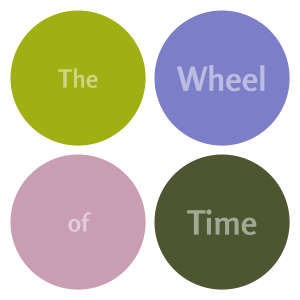Byte Syze Science
Refinement of face representations by exposure reveals different time scales of biases in face processing
2025-08-10
Alright, Sam, let's dive into this face recognition study. Imagine you're at a vegan food festival, and you're trying to remember the faces of all the people who loved your AI-driven vegan burger stand. Now, the more often you see these faces, the better you'll recognize them, right? That's like your brain's version of a customer retention algorithm.
This study is about how our brains get better at recognizing faces we see often, like the faces of our own race. It's like when you're scrolling...
Alright, Sam, let's dive into this face recognition study. Imagine you're at a vegan food festival, and you're trying to remember the faces of all the people who loved your AI-driven vegan burger stand. Now, the more often you see these faces, the better you'll recognize them, right? That's like your brain's version of a customer retention algorithm.
This study is about how our brains get better at recognizing faces we see often, like the faces of our own race. It's like when you're scrolling through your Instagram feed full of vegan influencers, you're more likely to recognize the ones you see more often.
The researchers had participants look at a series of morphed faces and decide if they were the same or different. It's like a game of "spot the difference" but with faces. The faces were all morphed versions of a "mean" face, kind of like how a Beyond Burger is a morphed version of a beef burger.
The results showed that people's face recognition gravitated towards the "mean" face, like a vegan drawn to a falafel stand at a food festival. This "regression-to-the-mean" effect was stronger for faces of their own race, which is like being able to spot the difference between a Beyond Burger and an Impossible Burger because you eat them more often.
Interestingly, the study found that people with weaker face recognition skills relied more on long-term memory, like remembering the taste of a burger you had a month ago. But those with stronger face recognition skills relied more on recent memory, like remembering the taste of the burger you had for lunch.
So, the takeaway here is that exposure to faces refines our ability to recognize them, and this process works differently depending on our face recognition skills. It's like how exposure to different vegan foods refines your palate, and how you remember those foods depends on your foodie skills.
For V-E-G-3, this could mean that the more often your customers see your brand, the more they'll recognize it. So, keep posting those mouth-watering vegan burger pics on Instagram! And remember, just like with face recognition, customer recognition might work differently for different people. Some might remember your brand from a long time ago, while others might only remember the last post they saw. So, keep a mix of fresh content and throwbacks in your social media strategy.
And hey, if all else fails, you could always morph your face with a vegan burger and become the "mean" face of V-E-G-3. I mean, who wouldn't recognize a burger-faced entrepreneur?
Article Name: Refinement of face representations by exposure reveals different time scales of biases in face processing
Article Author(s): unknown
Article URL: https://link.springer.com/article/10.3758/s13423-023-02314-1
View more
Comments (3)
More Episodes
All Episodes>>Create Your Podcast In Minutes
- Full-featured podcast site
- Unlimited storage and bandwidth
- Comprehensive podcast stats
- Distribute to Apple Podcasts, Spotify, and more
- Make money with your podcast
It is Free












